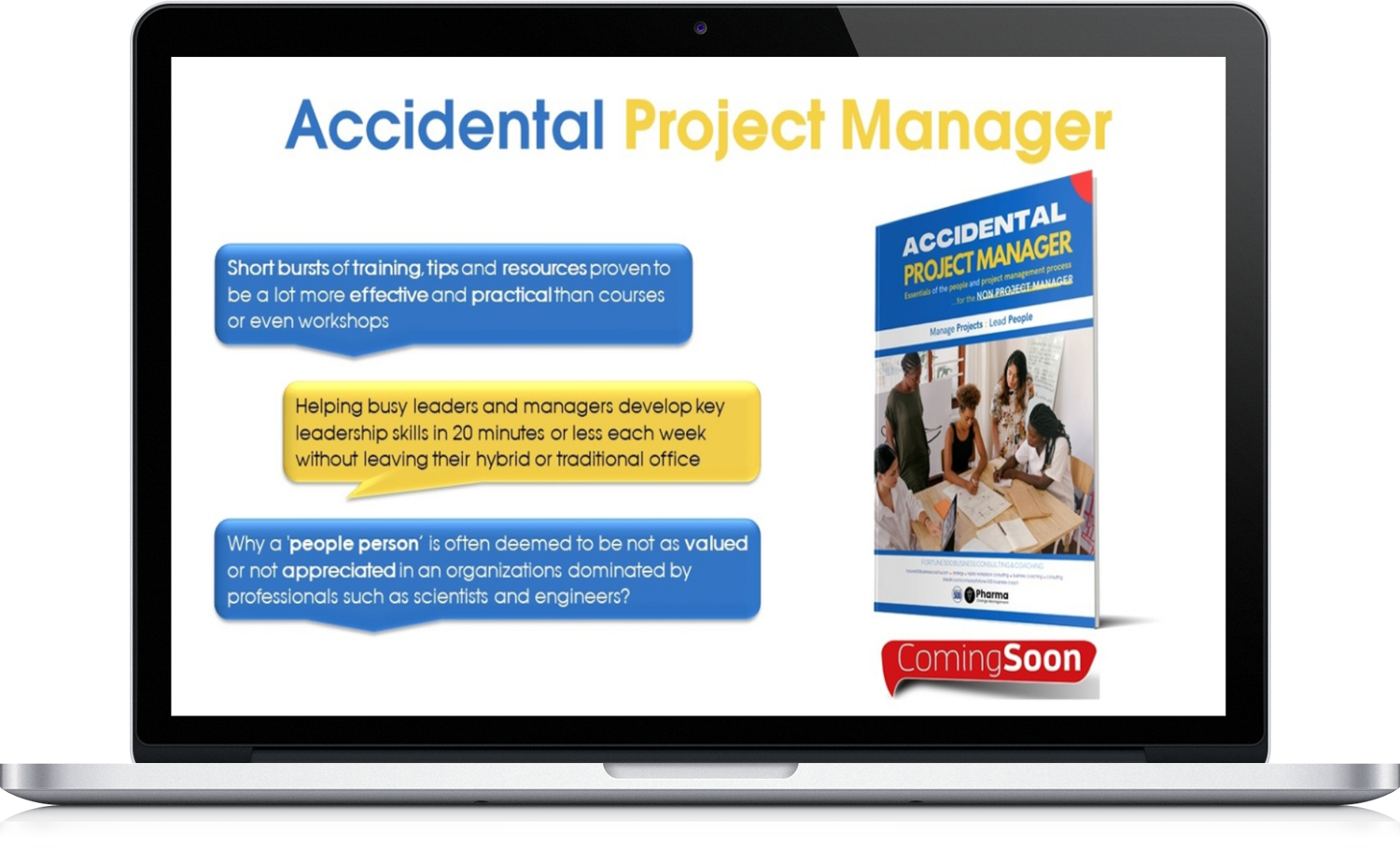A ‘people person‘ isn’t always valued or appreciated in organizations dominated by professionals, such as scientists, engineers and the numbers folks.
==================
Sidebar: Coming Soon!

==================
Why Are “People Oriented” People Not ‘Cool?’
The current (evolving hybrid and flexible) workplace regularly requires team members of all levels to coordinate and manage projects.
There’s a good chance you’re one of those people if this post caught your eye…or you may be a leader or manager of an individual or group facing this challenge.
And if your workplace regularly requires you to coordinate and manage projects even though you’re not a “professional” project manager, then you my friend, are an “ACCIDENTAL” project manager.
Here’s what you need to know…
One source I came across a while back (I believe it was PMI’s Pulse of the Profession?), stated that…
…for every $100 invested in projects worldwide, there’s a net loss of $13.50.
And that…
- 45% of projects are either overdue or cancelled entirely.
- On average, only 45% of projects actually achieve their goals.
- In the area of managing projects, only 8% of organizations are considered to be “high performers.“
Those are investments that have become “costs” gone forever…never to be recovered.
If people can’t confidently, competently and persuasively engage a group of good people to handle projects or programs, then no matter how “good” the organization’s program or project management “processes” might be, they won’t be effective.
It’s my belief, and clients’ results continue to prove that there’s no need to be drowned in EPMO, PMO or project management methodologies and frameworks in order to competently manage a project that delivers.
Even and especially when the leaders of the project are “accidental” project managers, maybe functional managers ordinary or high-performing, high potential team members of any function of any level within an organization.
Sadly, many companies insist on using out-of-date, and often complex but “documented somwehere” EPMO and PMO processes that quite frankly, add little to no value, unnecessarily complicate things, discourage organizational change from being embraced and contribute to already high project failure rates.
So, what’s needed?
A good understanding of a few basic principles of people management and how to implement them is what’s required, and this is simple but by no means easy.
As someone whose worked with clients around the globe for over twenty years, I’ve innocently but intentionally asked hundreds of people the following question:
“So, tell me, how much of your professional life do you think you spend working on projects?
However, when I dig deeper to find out if their official job title is “Project Manager” or “PM” the answer is often … 100% response of the time “No!”
And remember, this is across different industry sectors and especially in highly regulated industries and companies ex: pharma, life sciences, financial services, telecoms etc.,
But wait, there’s more.
What do you think happens when asked if they’ve ever been given project management training to handle that 70% to 80% of their time at work?
You got it.
Very few people say “Yes” they have.
The vast majority confirm (sometimes secretly for fear of retribution) that they’ve never had a single day of formal project management training but are expected to manage and deliver projects.
Those are the people I refer to as “accidental” project managers. The people the tips, tools the resource “Accidental Project Manager” is being designed for.
The Accidental Project Manager
 Q: What is the Accidental Project Manager and who is it for?
Q: What is the Accidental Project Manager and who is it for?
A: A resource designed for busy managers, supervisors, leads and functional team members asked to lead projects without formal PM training or certification and who want to avoid overwhelm, confusion and eliminate failure.
Next Step
If this is something you know you need follow me on LinkedIn at bayoao and you’ll be notified as the Accidental Project Manager resources become available in the next couple of weeks, including tips, checklists, training, a limited number of coaching spots and more.
*Follow me here
